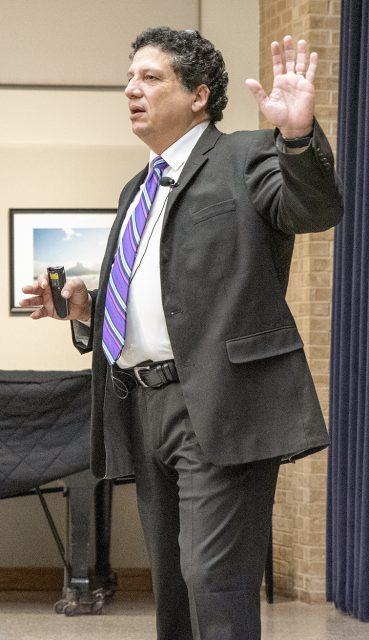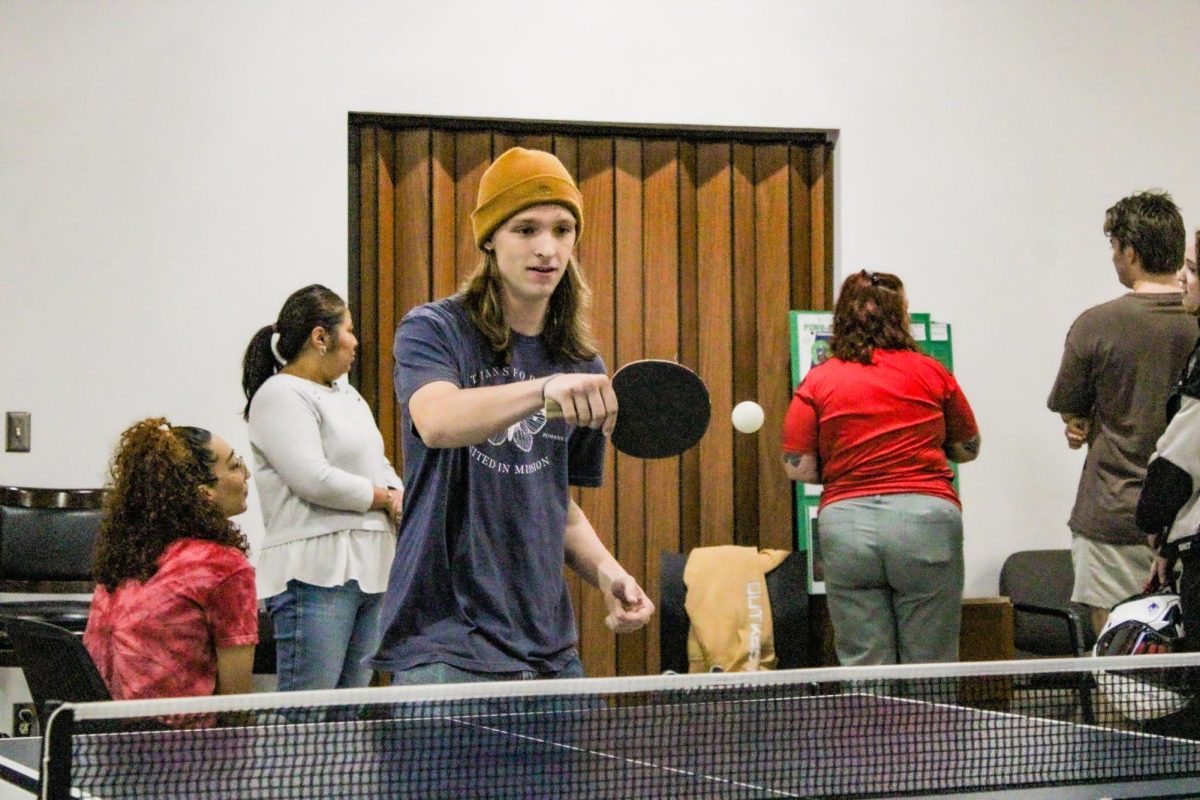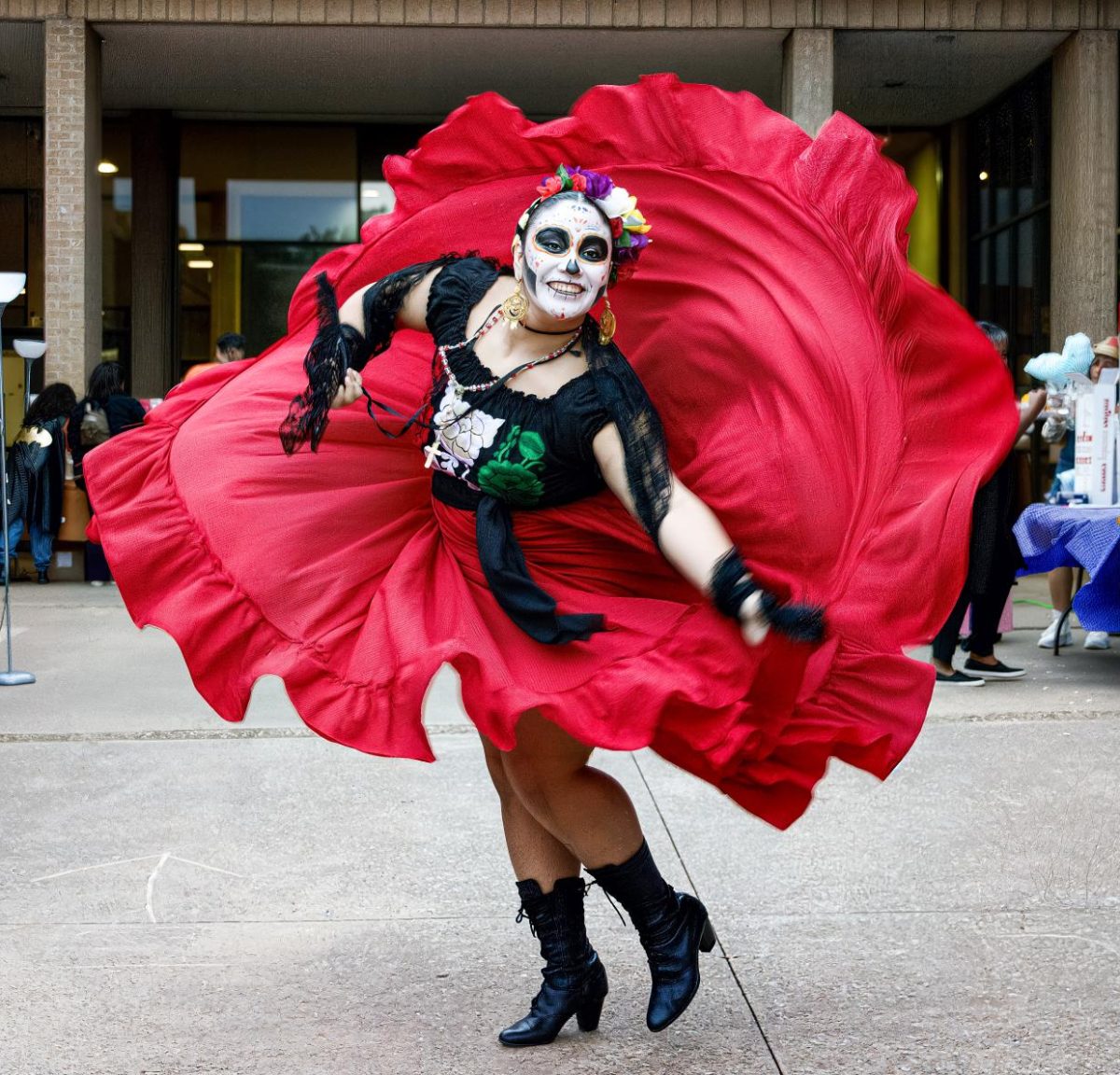| October 2, 2019 | Juan Ibarra | editor-in-chief |
|---|
 Regional attorney Robert Canino was going to speak about his experiences working with the Equal Employment Opportunity Commision, but the event went in a different direction to include more about the life decisions students make.
Regional attorney Robert Canino was going to speak about his experiences working with the Equal Employment Opportunity Commision, but the event went in a different direction to include more about the life decisions students make.
Canino’s speech was one of a series of speakers for Hispanic Heritage Month, and NE student activities coordinator Cara Walker described the process of finding speakers to give a new perspective to students.
“We want to find cool guests we can bring to give good perspective,” Walker said.
While he spoke about his anti-human trafficking work and his career over the last few years, Canino went into conversation about his life as a Hispanic and his journey through college to where he is today.
“I didn’t realize it was going to be mostly students,” Canino said.

Because he is used to speaking to groups of HR professionals or government officials, normally his presentation style is much more formal, but with students he was given the freedom to be more conversational, Canino said.
“I liked the ability to be myself with a group like this,” Canino said.
Canino spoke about his parents and their careers, as his mother was an attorney and his father worked at the EEOC. Although Canino grew up wanting to take a different career path from his parents, he ended up following into their footsteps.
“I didn’t plan it, it all fell in place that way,” Canino said.
However, he didn’t have a plan to do so and when it came time to go to college, he chose to follow some friends to a college in Oklahoma even though he had other options.
“I had all these scholarship offers and everything, but I went to where my heart led me,” Canino said. “I actually met my wife there, so how could I say I regret it.”
He never planned on going to law school nor working as a public servant, but Canino said he is happy with the decisions and choices that have led him to where he is today.
“I love what I do, no matter what I thought I wanted,” Canino said.
His role at the EEOC helped him accomplish a life goal of helping others, he said.
“I wanted to do something where I could actually help people in the courtroom or people who needed a voice, so I decided to become a public servant,” Canino said. “The EEOC allows me to be a good guy because I get to prosecute violators of the law, and that’s cool.”
Although Canino is proud of the work he does, he recognizes the amount of pay he is giving up.
“Does it mean that I’m going to make as much as I would have in the private sector? Absolutely not,” Canino said. “I’m a public servant, it is not about that.”
He spoke about a case where Indians were brought to America with the promise of success, but were kept in a factory. The Indian men gave up everything they had and sold everything in order to afford going to America.
Once they arrived, their captors used fear and racism as a way to keep the workers in the factory by saying everyone around the community would kill them or arrest them if they were seen in public.
Canino showed some recent photos of the men who were held captive and talked about how they have gone on to lead successful lives outside of the human trafficking system before pausing to take a minute.
“I still know all of these guys, so I have a hard time talking about it,” Canino said.
Walker said Canino was a good fit since he is active with the EEOC and she knew he would give a unique perspective of the work they do, which is the focus of the Hispanic Heritage Month’s speaker series.
“We wanted to bring in people who are successful in their careers and of Hispanic descent who could talk about their journey to give inspiration to the students,” Walker said.
NE student Chris Lavender said he learned a few things that he never would have learned about on the topic of human trafficking.
“It’s good to know there are these companies looking out for people,” Lavender said.





























